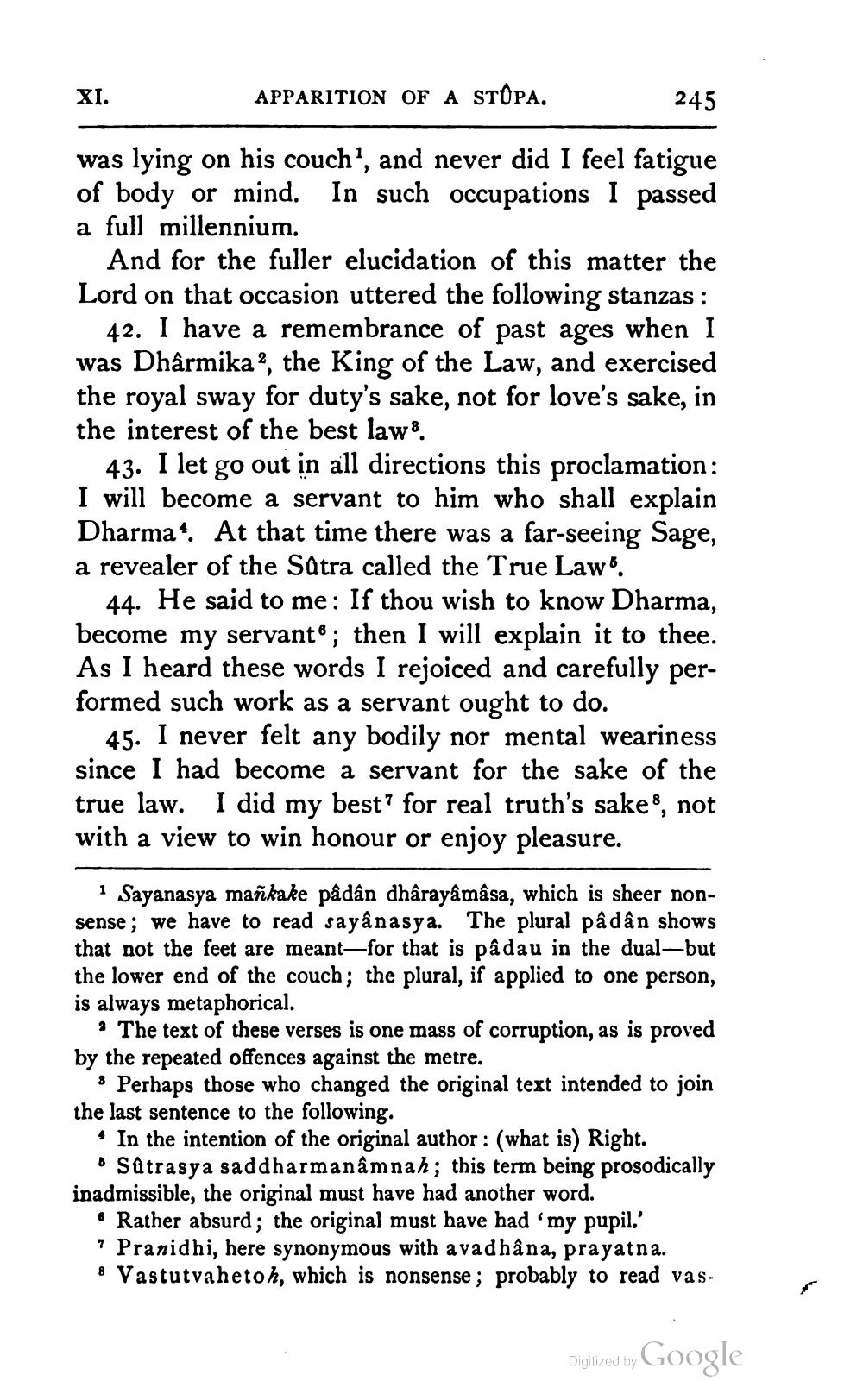________________
XI.
APPARITION OF A STOPA.
245
was lying on his couch', and never did I feel fatigue of body or mind. In such occupations I passed a full millennium.
And for the fuller elucidation of this matter the Lord on that occasion uttered the following stanzas :
42. I have a remembrance of past ages when I was Dhârmika, the King of the Law, and exercised the royal sway for duty's sake, not for love's sake, in the interest of the best laws.
43. I let go out in all directions this proclamation: I will become a servant to him who shall explain Dharma“. At that time there was a far-seeing Sage, a revealer of the Satra called the True Lawo.
44. He said to me: If thou wish to know Dharma, become my servanto; then I will explain it to thee. As I heard these words I rejoiced and carefully performed such work as a servant ought to do.
45. I never felt any bodily nor mental weariness since I had become a servant for the sake of the true law. I did my best for real truth's sake, not with a view to win honour or enjoy pleasure.
1 Sayanasya mañkake pådân dhârayâmâsa, which is sheer nonsense; we have to read sayanasya. The plural pâdân shows that not the feet are meant-for that is pâdau in the dual-but the lower end of the couch; the plural, if applied to one person, is always metaphorical.
9 The text of these verses is one mass of corruption, as is proved by the repeated offences against the metre.
Perhaps those who changed the original text intended to join the last sentence to the following.
• In the intention of the original author : (what is) Right.
• Sûtrasya saddharmanâmnah; this term being prosodically inadmissible, the original must have had another word.
• Rather absurd; the original must have had 'my pupil.' ? Pranidhi, here synonymous with avadhâna, prayatna. 8 Vastutvahetoh, which is nonsense; probably to read vas
Digitized by Google




